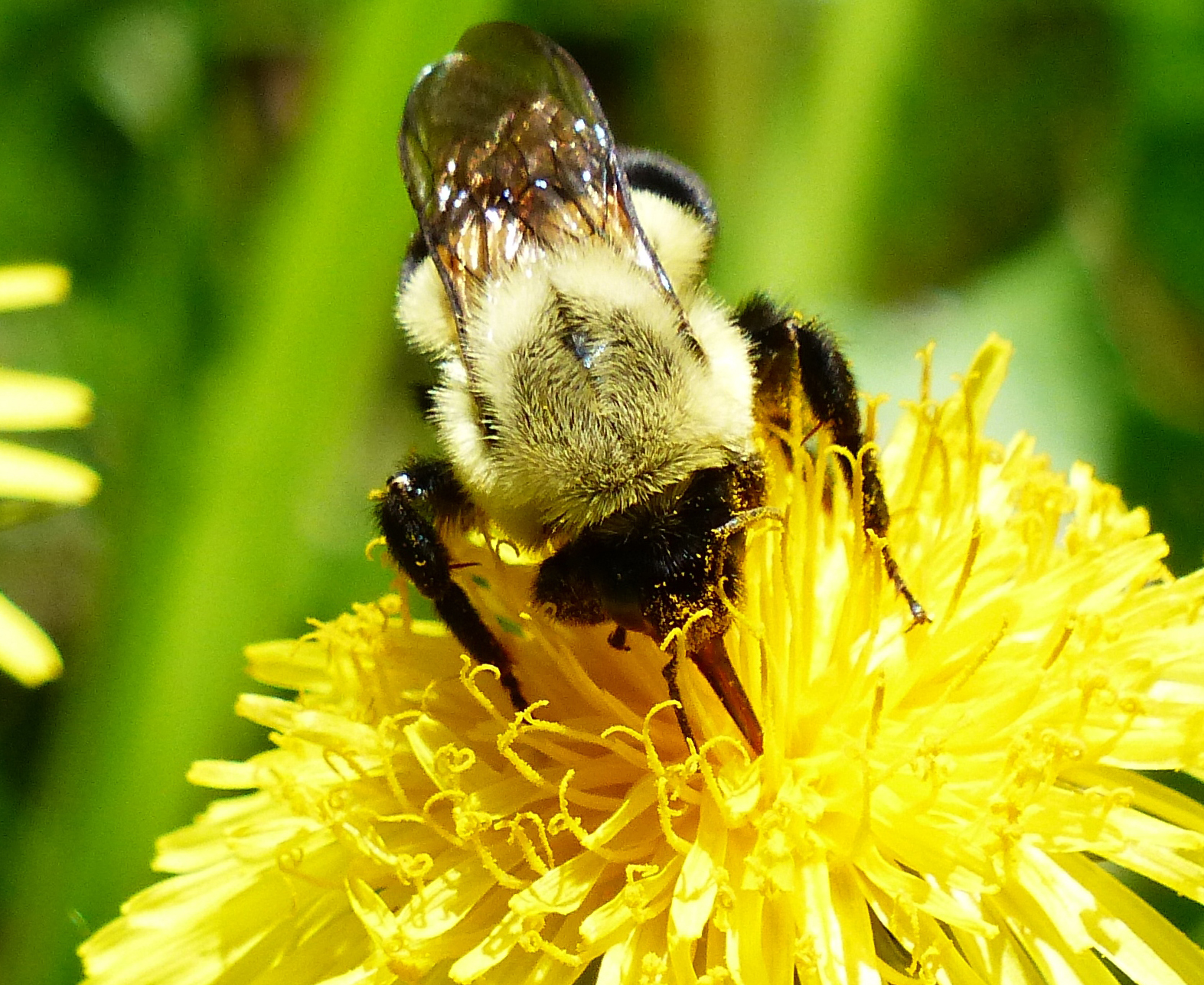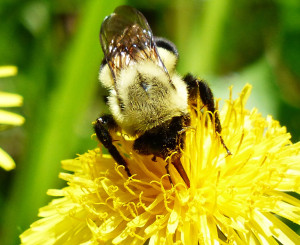Monday March 7: deadline on Ontario’s bee plan – get your comment in!

Bumble bee -Jennifer Howard photo
Let’s strengthen the plan to save pollinators
AWARE News Network
Our bees – especially the wild ones – are in serious trouble. So are other pollinators. All over the world, these keystone species are in danger of extinction. If we lose them, we lose our food production system as we know it.
The Ontario government has released a draft Pollinator Health Action Plan on ways to restore and protect pollinator populations. It is seeking comment by next Monday, March 7 2016.
Please provide your input and show you feel it’s important for the Wynne government to take meaningful action to protect and nurture bees and other pollinators.
Here are some resources to help you put your ideas together.
Below, suggestions from the David Suzuki Foundation and Ontario Nature.
And this is a link to the Ontario Beekeepers Association response. OBA-Response-Ontario-Pollinator-Action-Plan-FINAL It is detailed, comprehensive and worth reading.
From Ontario Nature
Ontario Nature welcomes the government’s initiative and supports many elements of the plan. In particular, we’re pleased that desired strategic outcomes include resilient, abundant and diverse populations of pollinators as well as abundant and healthy pollinator habitats.
Innovative proposed actions include:
• increasing the amount of pollinator habitat on public lands;
• initiating a campaign to encourage Ontarians to create pollinator habitats on private lands;
• monitoring neonicotinoid and other pesticide concentrations in the environment; and
• assessing the effects of land management practices (different plants, cover crops, land use, etc.) on pollinators.
Nevertheless, good intentions and promising ideas are not enough. If the plan is to actually succeed in sustaining and protecting Ontario’s wild pollinators, it needs to be strengthened in five key respects.
1. Provide specific goals, targets, timelines, assigned responsibilities and budgets to drive action. This should include a process to evaluate progress and outcomes.
2. Establish an independent scientific advisory body on native pollinators to ensure that the best available science informs the implementation and evaluation of the plan.
3. Include measures to understand and address all pesticides that may be harming pollinators.
4. Establish protocols with strict requirements to prevent further disease transmission from managed bees to wild native bees, a serious threat to wild pollinators.
5. Support incentives for pollinator-friendly farming practices and invest in research about the economic value of wild pollinators for farmers and their crops.
From the David Suzuki Foundation, suggestions for actions to be incorporated into the final Pollinator Health Action Plan:
1. By 2017, ensure all seed mixes and plantings by provincial agencies and on provincial lands include appropriate native plant species that support pollinators.
2. By 2018, establish and enhance pollinator-friendly habitat on 50 per cent of all roadsides, railways, hydro and infrastructure corridors in the province.
3. By 2020, establish a province-wide network of pollinator-friendly corridors, in co-operation with federal, provincial and municipal agencies and departments.
4. For the next five years, do field research into the ecosystem impacts of neonicotinoids and other systemic pesticides on Ontario’s pollinators and our waterways and soil. In addition, please ensure all targets in the Plan include timelines, responsible agencies and budgets.
To submit comment on the draft action plan you can
-Go directly to the Environmental Registry page (#EBR 012-6393).
-Use Ontario Nature’s Action Alert page which also takes your comments to the Environmental Registry.
-Use the David Suzuki Foundation’s message, which also goes to the government (and alerts your MPP, a good idea, you can do that on your own if you wish).
The government has also created an online survey that you can fill out. Click here for Ontario Nature’s suggestions on how to answer.
Bees and other pollinators are in a downward spiral towards extinction. Let the government know that you want it to take action!
Recently posted
News release from the United Nations Intergovernmental Science-Policy Platform on Biodiversity and Ecosystem Services that raises the alarm about bee species being driven to extinction all over the world.










Leave a Reply